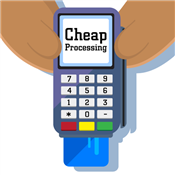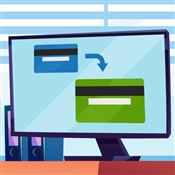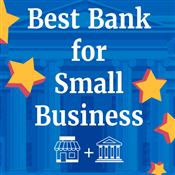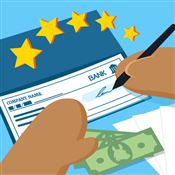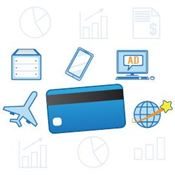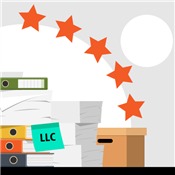Free Resources for First Time Business Owners
First-time business owner? These free resources are for you. Get answers to your questions on funding, taxes, and more in this guide for new business owners.
Starting a business can feel scary, but you're not alone!
With the right resources, you have everything you need to succeed.
Best of all, these resources are free.
In this guide, find reputable resources specifically for first-time business owners. Need help in the early development stages? Or tips on hiring employees? We've got you covered.
Development Guides
 |
Organizations like the SBA offer a treasure trove of business development info. Get familiar with the resources at your disposal so you know where to look if you need help on a specific topic.
- U.S. Small Business Administration: SBA assists new businesses through guides, loans, guarantees, and other programs.
- SBA Learning Platform: The program educates on best practices and financing options for new businesses.
- U.S. Small Business Administration Small Business Resource Guide: The guide provides information on how to start and grow small businesses.
- Writing a Business Plan: The document provides a template and guidelines for writing a business plan.
- Bplans: Bplans offer free business plans and templates.
- USAGov State and Territory Business Resources: The directory provides state-level business resources for regulations and financing opportunities.
- America's SBDC: SBDC local centers provide no-cost business consultation and low-cost training for new businesses.
- Google Primer: The app provides free lessons to help owners grow their skills and business.
- SCORE: SCORE provides free webinars focused on business marketing and education.
- Bizlaunch: The platform provides free access to upcoming and previous webinars of training for entrepreneurs.
- Research your market (and keep doing it regularly).
- Create a professional network to learn from and collaborate with.
- Always know where your finances stand - never guess or assume anything.
- Remember that success is (almost) never linear.
- Ask for help when you need it.
Funding
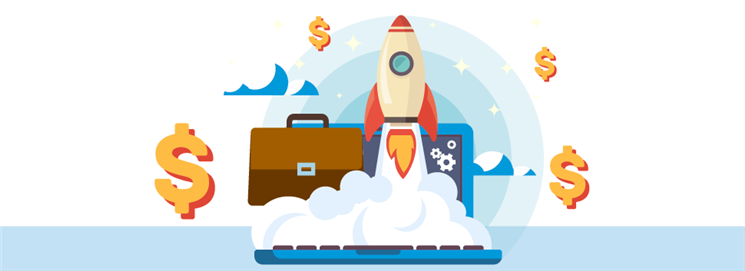 |
All businesses start with funding. Whether you need help paying for operating costs or need to buy crucial equipment, the following resources are worth checking out.
- 7(a) Loans: The program provides financial help to small businesses for real-estate purchases, working capital, debt refinances, and asset purchases.
- SBA Programs - Scams and Fraud Alerts: The guide provides tips on how to avoid fraud or scam when getting a loan.
- Economic Injury Disaster Loans: The program provides a loan to small businesses experiencing temporary revenue loss due to the pandemic.
- Paycheck Protection Program: The program helps small businesses keep their workers employed during the pandemic.
- SBA Debt Relief: The program provides debt relief for existing SBA loan borrowers during the pandemic.
- SBA Express Bridge Loans: The program provides funds up to $25,000 to small businesses that have business relationship with SBA Express Lenders.
- Microloans: The program provides up to $50,000 loans to small businesses.
- Lender Match: The tool helps small business owners find SBA-approved lenders.
- Find a SBA Office: The tool helps users find the district and regional SBA offices throughout the USA.
- FundBox: FundBox assists small business owners to find working capital through loans and lines of credit.
- Funding Circle: Funding Circle helps small business owners find funding for working capital.
- Kiva: Small business owners can get a loan of up to $15,000 at 0% interest plus free marketing.
Stick around. Later in this article, you'll find more info on funding your new business, including average interest rates on business loans.
Employee Basics: Hiring, Compliance, Benefits
 |
Looking to expand your team? Get prepared by reviewing the info below. You'll learn more about labor laws, compliance, and how to secure health benefits for your employees.
- A Step-by-Step Guide to Hiring Your First Employee: The guide helps business owners prepare to hire their first employees.
- Employment Laws Assistance for Workers and Small Businesses (ELAWS): Online tools to help employees and small businesses understand their rights regarding employment laws.
- WHD Compliance Assistance Toolkits: Toolkits that help employers understand how to comply with the federal labor laws.
- WHD Industry-Specific Resources: WHD provides industry-specific compliance assistance programs to help employers understand federal labor laws.
- U.S. Department of Labor's Wage and Hour Division (WHD): WHD local offices that support new small businesses to comply with federal labor laws.
- Employer.gov: The U.S. Department of Labor created Employer.gov to assist employers with their responsibilities for their workforce.
- CareerOneStop Business Center: The business center provides resources for employers to help in hiring and training employees.
- DOL-Timesheet App: The app helps both employees and employers track and keep a record of work hours.
- HealthCare.gov: A platform to help business owners find health insurance packages for their businesses and employees.
- Do preliminary market research.
- Prepare for upfront and ongoing costs.
- Finalize your business plan.
- Name your business + secure your domain. (Read: Hostgator Domain)
- Choose your business structure.
- Get any necessary permits, licenses and insurance.
- File for an EIN.
- Set up business bank accounts.
- Hire your team.
- Comply with labor safety requirements.
- Market your business.
Protecting Your Business
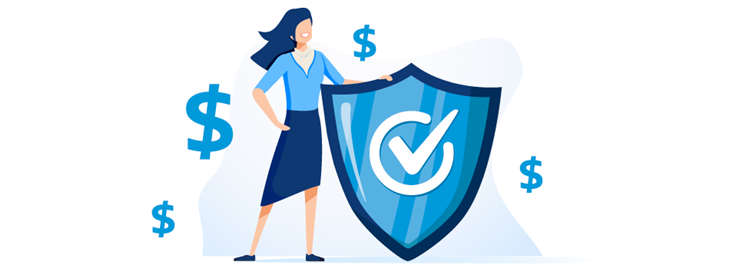 |
It may not be the most glamourous part of managing a business, but taking precautions is important. Learn more about security, scams, and emergency preparedness with the info below.
- Scams And Your Small Business: A Guide For Business: This provides essential information and tips on how to avoid fraudulent activities for small businesses.
- 10 Cyber Security Tips for Small Business: A list of tips to help protect your business and customer's information and data from cyberthreats.
- Cybersecurity for Small Business: This guide provides tips on how to protect your business from cyber-attacks.
- Employee Theft Prevention for Small Businesses: This guide provides tips for business owners to avoid fraudulent and theft activities from employees.
- Managing Safety and Health: This guide provides tips on how to create a system for health and safety in business.
- Get business insurance: This guide provides information on different types of business insurance and tips on how to buy insurance coverage.
- Business Emergency Preparedness Social Media Toolkit: These social media toolkits provide awareness to safeguard your business and customers from emergencies.
Many new businesses, like startups, operate at a loss before they start making a profit. If you're in that situation, it helps to know how long your capital will last until you need new funding.
Our burn rate calculator allows you to do just that:
Understanding Federal Taxes
 |
The taxes you pay will depend on the type of business you're operating. Review the below information on federal business taxes so you're prepared when tax season rolls around.
- IRS Publication for Small Businesses: The publications help small businesses understand tax-related concerns.
- Tax Information For Businesses: The directory has tax-related information necessary for operating a business in the US.
- IRS Industries/Professions Tax Centers: List of industry-specific resources for understanding tax-related concerns.
- EFTPS: The Electronic Federal Tax Payment System: Small business owners can pay their federal taxes online or by phone through EFTPS.
- Small Business Tax Workshop: The workshop helps new businesses understand federal taxes.
Related: Best Tax Relief Companies
Marketing
 |
All businesses need some way to get their name out there. Find out how to build your brand, create a campaign and start marketing with the resources below.
- Yelp for Business Owners: The platform offers a free listing of businesses to increase brand awareness and customer engagement online.
- The Real Yellow Pages: Small businesses can advertise and promote through listing on the platform.
- Buffer: Buffer helps manage social media and brand engagement online.
- Instagram Business: Small businesses can set-up a free business profile on Instagram and create a business account to gain access to features such as promoted posts or paid advertisements.
- Canva: Canva has a free version of creating design essentials for marketing purposes.
- Facebook Shops: Business owners can set-up their own Facebook shop for free to increase customer engagement.
- Google My Business: Business owners can add their businesses on Google for free engagement online and reach more customers.
4 Ways to Fund Your Small Business
The four business loans below represent the majority of financing that small businesses get. Review the details to see which works best for your business.
SBA Loan
An SBA loan is backed by the Small Business Administration, an agency of the U.S. Government.
Borrowers apply for an SBA loan with private lenders and are usually secured, meaning they require collateral. The three main types of SBA loans are:
- 7(a) Loans: SBA's primary loan program; loan amounts are usually between $350K to $5M.
- Microloans: Small loans, between $10K and $50K; these loans are ideal for startups who need a modest boost.
- CDC/504 Loan: Long-term, fixed-rate financing for major fixed assets (i.e., equipment or real estate).
Business Line of Credit
Like a credit card, a business line of credit only requires you to pay interest on the amount of money you borrow, not your entire credit limit.
You use up and repay the borrowed money as needed. Business credit lines range from $1K to $250K and do not require collateral. They are offered by banks or online lenders.
Term Loan
Term loans are paid back in regular installments, also called terms. They are offered by banks and online lenders for amounts ranging from $25K to $500K in terms of 1-5 years.
These are generally easy to qualify for, as long as your business has decent credit and generates revenue.
Working Capital Loan
These are short-term business loans meant to finance day-to-day business operations, as opposed to major fixed assets like equipment or real estate.
Working capital loans are usually offered by big national banks and require an excellent credit history.
SBA Loan: 5-11%
Business Line of Credit: 5-20%
Traditional Bank Loan: 2-13%
Online Lender Loan: 10-99%
Working Capital Loan: 7-99%
Bottom Line
The resources in this guide will help set you up for success. But your research doesn't end here. As your business grows, try to stay on top of business trends, collaborate with peers, and develop your professional network. Building a business is hard work, but you'll be proud of what you can build.
Note: This website is made possible through financial relationships with some of the products and services mentioned on this site. We may receive compensation if you shop through links in our content. You do not have to use our links, but you help support CreditDonkey if you do.
|
|
| ||||||
|
|
|



